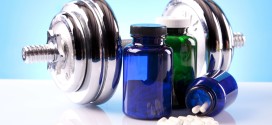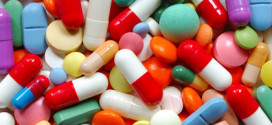Vitamins
Intro
A vitamin is an organic compound required as a nutrient in tiny amounts by the body. In other words, an organic chemical compound is called a vitamin when it cannot be made in sufficient quantities by the body, and must be obtained from the diet.
Certain vitamin deficiencies lead to various health issues ranging from anaemia to altered metabolism. This is because they play a crucial role in the function of nearly every organ and combine with other substances to produce certain necessary chemical reactions.
Usually vitamins are separated into the categories of “fat-soluble” and “water-soluble”. Vitamins A, D, E, and K are fat soluble and require a sufficient amount of minerals and fats in order to be properly absorbed within the digestive system; these vitamins are stored in the liver. All of the remaining vitamins are water-soluble and need to be replenished frequently as any excess is excreted in the urine.
Why are they important?
- During strenuous physical activity, an enormous amount of vitamins and minerals are depleted from our bodies.
- Making sure our bodies have enough vitamins and minerals helps maintain and improve proper health.
- Failure to maintain healthy vitamin and mineral levels can lead to hindered performance in the gym, slowing down growth, and in severe cases, also lead to other health problems.
Where are they?
| Vitamin | Food source |
| Vitamin A (Retinol) | Cod liver oil |
| Vitamin B1 (Thiamine) | Rice bran |
| Vitamin C (Ascorbic acid) | Citrus, most fresh foods |
| Vitamin D (Calciferol) | Cod liver oil |
| Vitamin B2 (Riboflavin) | Meat, eggs |
| Vitamin E (Tocopherol) | Wheat germ oil, unrefined vegetable oils |
| Vitamin B12 (Cobalamins) | liver, eggs, animal products |
| Vitamin K1 (Phylloquinone) | Leafy green vegetables |
| Vitamin B5 (Pantothenic acid) | Meat, whole grains, in many foods |
| Vitamin B7 (Biotin) | Meat, dairy products, eggs |
| Vitamin B6 (Pyridoxine) | Meat, dairy products |
| Vitamin B3 (Niacin) | Meat, eggs, grains |
| Vitamin B9 (Folic acid) | Leafy green vegetables |
The Different Ones
Vitamin C (Ascorbic Acid)
- Enhances recovery and growth in muscle cells. Vitamin C is also an antioxidant.
- Involved in the formation of Collagen, the primary constituent in connective tissue (connective tissue holds your bones and muscles together). As you lift heavier weights, you put more stress on your structure. If your connective tissue is not as strong as it should be you have a much higher risk of injury.
- Helps in the absorption of Iron. With an Iron deficiency, the amount of oxygen that gets bonded to hemoglobin in the blood decreases and muscular performance is greatly reduced.
- Diffuses very rapidly in water. Since a muscle cell is mostly water, the more muscular an athlete becomes, the more vitamin C disperses and the lower the concentration of this critical substance becomes in body tissues. So vitamin C requirements are greatly increased for bodybuilders.
- Finally: Vitamin C assists in the formation and release of steroid hormones, including the anabolic hormone testosterone.
- Dietary sources: The largest sources of vitamin C are present in citrus fruits and fruit juices.
Vitamin B6 (Pyridoxine)
- The only vitamin directly tied to protein intake. The greater protein consumption, the greater amount of vitamin B6 you need.
- Vitamin B6 makes it possible for protein metabolism, growth and carbohydrate utilization to take place.
- Dietary sources: Avocados, nuts, liver, chicken, fish, green beans, field salad, wheat germ, nutritional yeast, sea vegetables, and bananas are particularly good food sources.
Thiamine (vitamin B1)
- Required for protein metabolism and growth.
- Involved in the formation of hemoglobin which is a protein found in red blood cells that transports oxygen to working muscles in the body.
- Oxygen transportation becomes increasingly more important to athletic performance as intensity and duration of exercise increase.
- As the amount of exercise, intensity, and duration of exercise increase, the more thiamine is needed.
- Dietary sources: Green peas, Spinach, Liver, Beef, Pork, Navy beans, Nuts, Pinto beans, Bananas, Soybeans, Goji berries, Whole-grain and Enriched Cereals, Breads, Yeast,the aleurone layer of unpolished rice, and Legumes.
Vitamin D
- Vitamin D is necessary in the absorption of Calcium and Phosphorus. If adequate stores of Calcium are not available in the muscle, full and hard muscular contractions will not be achieved.
- Quick, powerful muscular contractions are provided by Phosphorus. Phosphorus is also required for the synthesis of ATP.
- Dietary sources: No-fat or low fat MILK.
Niacin (vitamin B3)
- Involved in nearly 60 metabolic processes related to energy production.
- Nicotine acid, a form of Niacin, causes vasodilatation which can help competitors looks more vascular on stage. Large doses of Nicotine acid drastically impair the body’s ability to mobilize and burn fat.
- Dietary sources include: turkey meat (the body uses the amino acid tryptophan to create Niacin), dairy products, poultry, fish, lean meats, nuts, and eggs.
Vitamin E
- Used in protection of cell membranes since it is a powerful antioxidant.
- Recuperation and growth of muscle cells is dependent on healthy cell membranes.
- Vegetable oils, nuts, green leafy vegetables, and fortified cereals are the most common food sources of vitamin E.
Vitamin A
- Vitamin A helps with vision.
- Important in the synthesis of protein (muscle growth!!!).
- Involved in the production of Glycogen (the body’s form of energy for high intensity activities).
- Very important for contest preparation.
Riboflavin (vitamin B2)
- Involved in 3 main processes: 1) Glucose metabolism, 2) Oxidation of fatty acids, and 3) The shuttling of Hydrogen through the Krebs cycle (also known as the citric acid cycle where certain molecules are broken down into energy in the form of ATP).
- For bodybuilding purposes, riboflavin is related to protein metabolism. There is a strong relationship between lean body mass and dietary riboflavin.
- Foods rich in riboflavin: liver, almonds, soy nuts, shellfish, milk and other dairy products, and eggs.
Cobalamin (vitamin B12)
- Carbohydrate metabolism and maintenance of nervous system tissue (spinal cord, nerves that carry signals from the brain to muscle tissue).
- The stimulation of muscles via the nerve cells is a critical step in the contraction, coordination, and growth of muscles.
- B12 is only available from foods of animal origin (beef, chicken, fish, pork, etc.)
Biotin
- Critical in amino acid metabolism and production of energy from many sources.
- Bodybuilders who eat raw egg whites gain a substance called Advin, which blocks biotin absorption.
- Sources of biotin include: egg yolk, liver, kidney, pancreas, milk, soya, and barley.
How much do I need?
For most people, they are advised to stick to the Recommnded Daily Amounts (RDA), however, athletes and bodybuilders need more of everything, so sticking to RDAs isn’t going to get you very far, hence, using Performance Daily Intake(PDI) is a better indicator for what you should be taking. Below I got a list of the recommended amounts for both RDAs and PDIs
Recommended Daily Amounts:
- Vitamin A – 5,000 IU
- Vitamin C – 60 mg
- Vitamin D – 400 IU
- Vitamin E – 30 IU
- Vitamin K – 80 mcg
- Thiamin (B1) – 1.5 mg
- Riboflavin (B2) – 1.7 mg
- Niacin (B3) – 20 mg
- Pyridoxine (B6) – 2 mg
- Folate – 400 mcg
- Cobalamin (B12) – 6 mcg
- Biotin – 300 mcg
- Pantothenic Acid (B5) – 10 mg
Performance Daily Intake
- Vitamin A – 5,000-25,000 IU
- Beta-Carotene – 15,000-25,000 IU
- Vitamin B1 – 30-300 mg
- Vitamin B2 – 30-300 mg
- Vitamin B3 – 20-100 mg
- Vitamin B5 – 25-200 mg
- Vitamin B6 – 20-100 mg
- Vitamin B12 – 12-200 mcg
- Biotin – 125-300 mcg
- Folate – 400-1,200 mcg
- Vitamin C – 800-3,000 mg
- Vitamin D – 400-1,000 IU
- Vitamin E – 200-1,000 IU
- Vitamin K – 80-180 mcg
So I hope that now you read this, you know a little bit more about why they are important and what you should be looking for.
Let me know what you guys think.
Enjoy.
 Supplement Judge Unbiased Supplement Reviews – Do they really work??
Supplement Judge Unbiased Supplement Reviews – Do they really work??





[…] All-in-One Multivitamin Posted by admin Categories: Dietary Tips, Does It Work? In an earlier post we looked at the effect of various vitamins on the body. However, I felt it’s worth […]